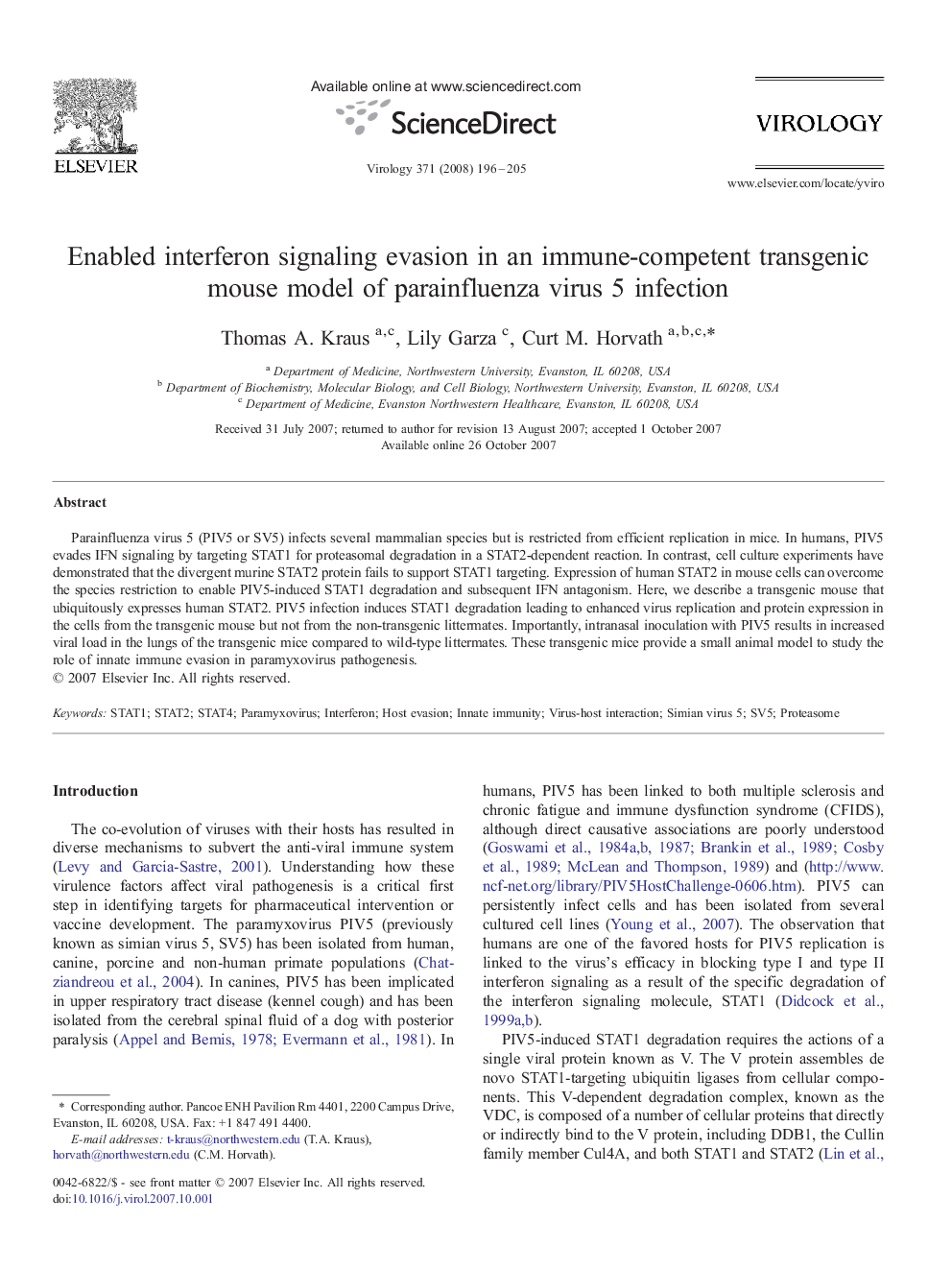| Article ID | Journal | Published Year | Pages | File Type |
|---|---|---|---|---|
| 3427081 | Virology | 2008 | 10 Pages |
Parainfluenza virus 5 (PIV5 or SV5) infects several mammalian species but is restricted from efficient replication in mice. In humans, PIV5 evades IFN signaling by targeting STAT1 for proteasomal degradation in a STAT2-dependent reaction. In contrast, cell culture experiments have demonstrated that the divergent murine STAT2 protein fails to support STAT1 targeting. Expression of human STAT2 in mouse cells can overcome the species restriction to enable PIV5-induced STAT1 degradation and subsequent IFN antagonism. Here, we describe a transgenic mouse that ubiquitously expresses human STAT2. PIV5 infection induces STAT1 degradation leading to enhanced virus replication and protein expression in the cells from the transgenic mouse but not from the non-transgenic littermates. Importantly, intranasal inoculation with PIV5 results in increased viral load in the lungs of the transgenic mice compared to wild-type littermates. These transgenic mice provide a small animal model to study the role of innate immune evasion in paramyxovirus pathogenesis.
